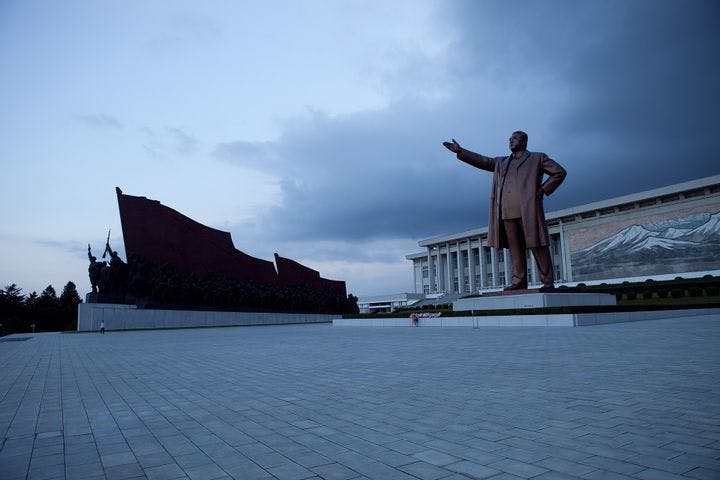Summer 2011
If North Korea Falls
– The Wilson Quarterly
It's hard to tell how stable the North Korean regime is, but when it goes, it will be a international calamity.
Over the last 50 years, Northeast Asia has been transformed from a remote backwater devastated by war into the crossroads of the 21st century, economically, politically, and militarily. One vestige of the old days remains: North Korea. Impoverished and isolated, it is nevertheless the keystone on which the fragile architecture of the region’s power relations rests. A North Korean collapse—a possibility but not a certainty—could drag China, South Korea, Japan, and possibly the United States into conflict. Robert D. Kaplan and Abraham M. Denmark, both fellows at the Center for a New American Security, warn that these powers are not prepared for the challenge.
It’s a fool’s errand to predict whether or when the regime of Kim Jong Il or his son will fall apart. The country faces severe challenges at the same time that North Koreans have gained more access to the wider world. Mobile phones have become popular, Korean-language broadcasts of Voice of America and Radio Free Asia are available 24/7, and there is a black market in pornography and South Korean soap opera DVDs. Yet despite increased media availability, many people are so poor that some are said to be surviving on little more than grass. But the regime has withstood decades of extreme poverty. Could the Arab Spring affect North Korea? “It would be more likely . . . to spread to the next galaxy,” says one unnamed expert.
More than one crumbling country has been saved from chaos by its military, as Romania was after the collapse of communism in 1989. North Korea’s army might not be up to the job. It is organized around regional commands. Civil war could erupt if they weren’t united under an international occupying force. And if the military fractured, “who would control nuclear facilities, biological weapons sites, missile production facilities, dual-use chemical production sites, chemical storage facilities, and weapons research centers?” Kaplan and Denmark ask.
If the regime did fall apart, the population of 22 million would become the responsibility of the international community—in practical terms South Korea, the United States, and China. It’s not clear their three armies could work together. South Korea officially seeks reunification but China benefits from division, preferring a buffer between it and democratic South Korea. Beijing might oppose reunification even after a collapse. Above all, it fears instability, which could send millions of North Korean refugees streaming into Manchuria. South Korea has its own worries about refugees.
Given all these conflicting interests in the region, one thing is clear, the authors write: If North Korea ruptures, “someone is going to lose.” The three powers plus Japan and Russia should be talking now about what they would do in the event of a collapse that’s well within the realm of possibility. Alas, say the authors, there’s no sign they’re doing that.
THE SOURCE: “The Long Goodbye: The Future North Korea” by Robert D. Kaplan and Abraham M. Denmark, in World Affairs, May–June 2011.
Photo courtesy of Flickr/Roman Harak
